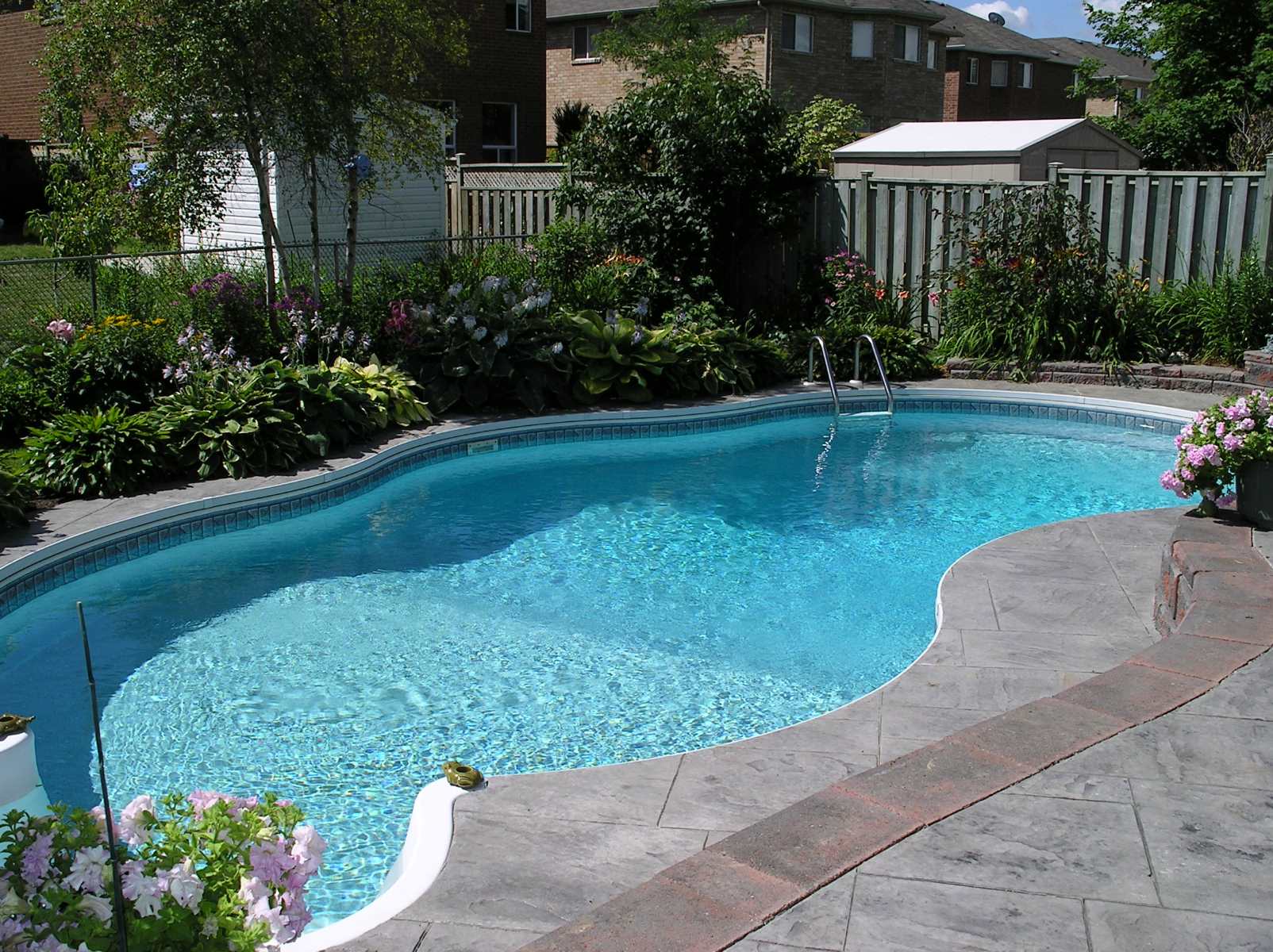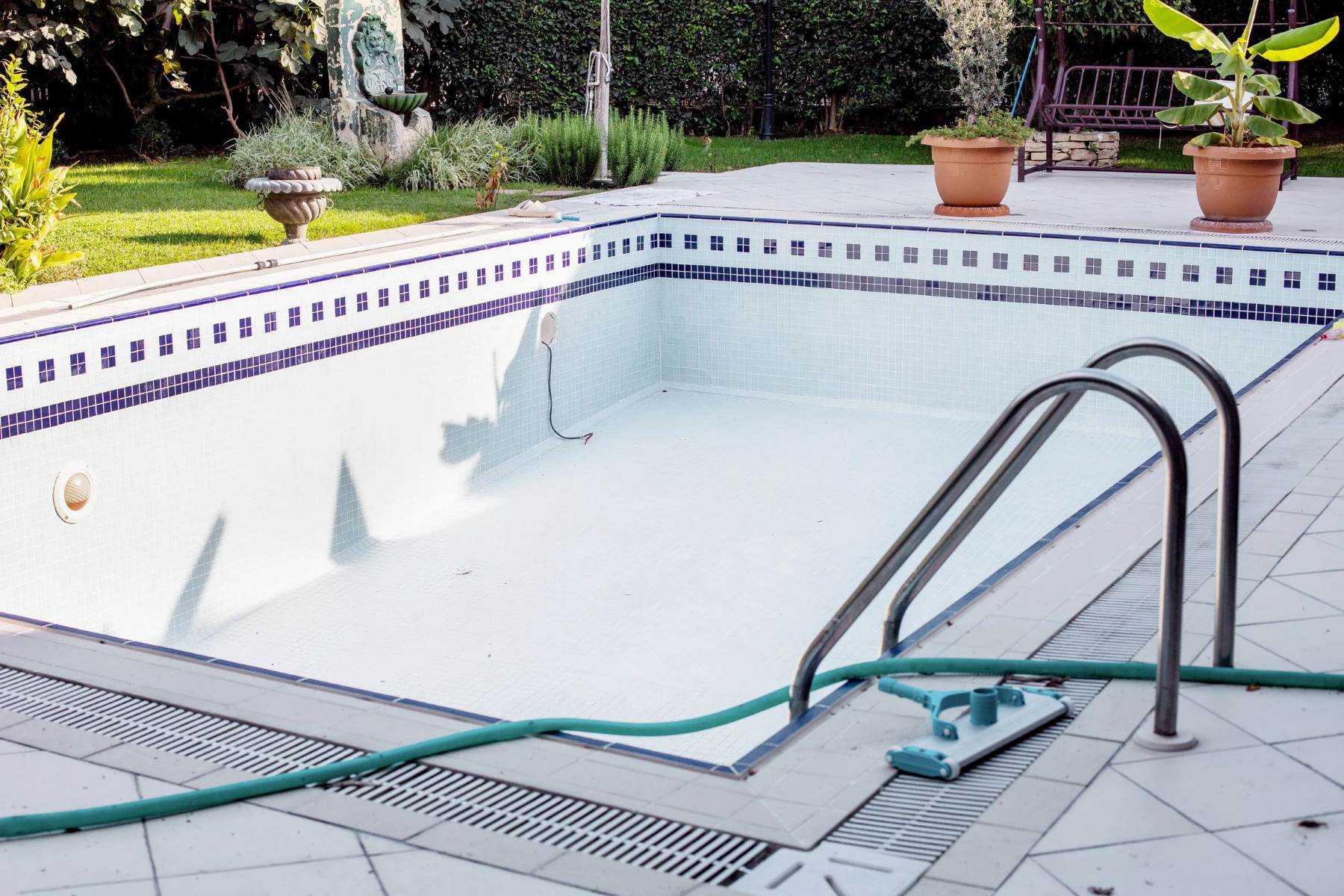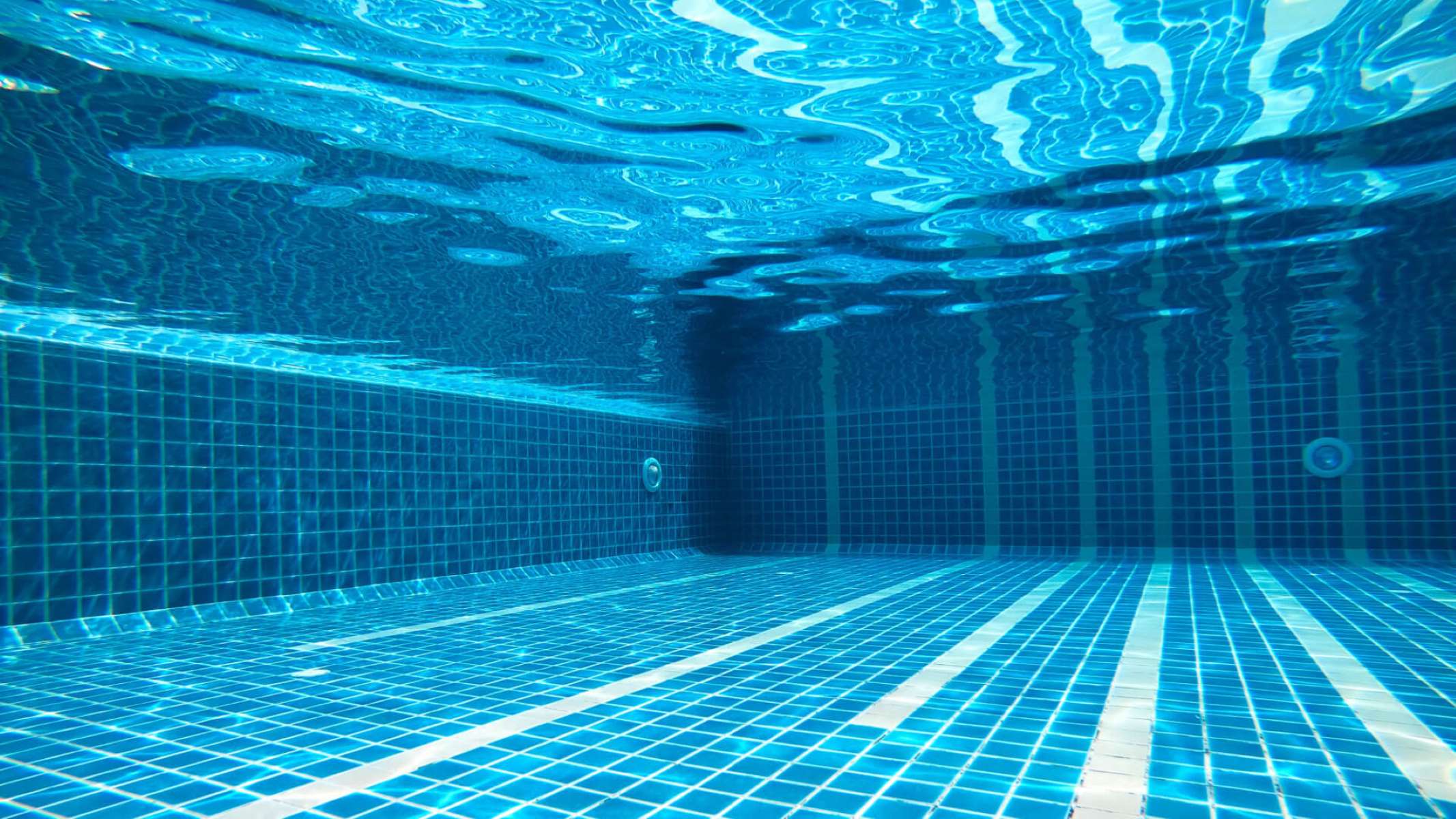Home>Gardening & Outdoor>Outdoor Recreation & Activities>When Is A Swimming Pool A Tax Deduction


Outdoor Recreation & Activities
When Is A Swimming Pool A Tax Deduction
Published: February 18, 2024
Learn about the tax implications of installing a swimming pool and whether it qualifies as a deduction for outdoor recreation and activities. Understand the criteria for claiming tax benefits for your pool.
(Many of the links in this article redirect to a specific reviewed product. Your purchase of these products through affiliate links helps to generate commission for Storables.com, at no extra cost. Learn more)
Introduction
When it comes to the topic of tax deductions, most people think of the usual suspects: mortgage interest, charitable donations, and medical expenses. However, there's one potential deduction that often flies under the radar: swimming pools. Yes, you read that right. Under certain circumstances, the cost of a swimming pool can be considered a tax-deductible expense.
The idea of a swimming pool as a tax deduction might sound surprising at first, but it's rooted in the concept of medical expense deductions. According to the Internal Revenue Service (IRS), certain medical expenses are eligible for tax deductions if they exceed a certain percentage of the taxpayer's adjusted gross income. This includes expenses related to the diagnosis, cure, mitigation, treatment, or prevention of disease, as well as the costs for equipment, supplies, and diagnostic devices.
For individuals with specific medical conditions that can be alleviated or managed through hydrotherapy or swimming exercises, the installation of a swimming pool can potentially qualify as a medical expense. This is particularly relevant for individuals with conditions such as arthritis, fibromyalgia, or other musculoskeletal disorders, where aquatic therapy can provide significant therapeutic benefits.
It's important to note that not all swimming pool expenses automatically qualify for a tax deduction. The eligibility criteria are stringent, and the documentation and record-keeping requirements are substantial. Additionally, there are limitations and restrictions that taxpayers need to be aware of before considering a swimming pool as a potential tax deduction.
In this comprehensive guide, we will delve into the intricacies of the tax deduction criteria for swimming pools, explore the types of swimming pool expenses that may be deductible, discuss the documentation and record-keeping requirements, and highlight potential limitations and restrictions. By the end of this article, you will have a clear understanding of the factors to consider when evaluating the tax deductibility of a swimming pool, empowering you to make informed decisions regarding this unique and often overlooked tax benefit.
Key Takeaways:
- Swimming pool expenses may be tax-deductible if prescribed by a healthcare professional for medical conditions. Detailed documentation and adherence to IRS guidelines are crucial for claiming this unique tax benefit.
- While swimming pool expenses can be tax-deductible, strict criteria, limitations, and record-keeping are essential. Understanding these complexities is key to leveraging potential tax benefits.
Read more: When Was The Swimming Pool Invented
Understanding the Tax Deduction Criteria
The tax deduction criteria for swimming pools revolve around the fundamental principle of medical necessity. According to the IRS, medical expenses that are primarily for the prevention or alleviation of a physical or mental defect or illness may be eligible for tax deductions. This includes the costs associated with the diagnosis, cure, mitigation, treatment, or prevention of disease, as well as the expenses for equipment, supplies, and diagnostic devices.
When it comes to swimming pools, the key consideration is whether the pool is specifically prescribed by a licensed healthcare professional to alleviate a medical condition. This prescription is crucial in establishing the medical necessity of the swimming pool as a therapeutic intervention. It must outline the nature of the medical condition, the therapeutic benefits of aquatic exercises or hydrotherapy, and the recommended specifications for the pool, such as temperature and size, to support the prescribed treatment.
Furthermore, the IRS emphasizes that the primary purpose of the swimming pool should be for medical care. This means that the pool should be used predominantly for therapeutic activities that are directly related to the prescribed treatment. Any expenses incurred for the non-medical use of the pool, such as recreational activities, would not qualify for a tax deduction.
In addition to the medical necessity requirement, the IRS also stipulates that the cost of the swimming pool and its installation should be reasonable and necessary. This entails evaluating whether the expenses incurred are commensurate with the nature of the prescribed treatment and are not extravagant or luxurious in nature.
It's important to recognize that the tax deduction criteria for swimming pools are stringent and necessitate a clear demonstration of medical necessity, as well as adherence to the guidelines set forth by the IRS. Taxpayers considering the deduction of swimming pool expenses must ensure that they meet these criteria and maintain thorough documentation to substantiate the medical need and purpose of the pool.
By understanding the tax deduction criteria in relation to swimming pools, individuals can navigate the complexities of this unique tax benefit and make informed decisions regarding the potential eligibility of their swimming pool expenses for tax deductions.
Types of Swimming Pool Expenses That May Be Deductible
When evaluating the tax deductibility of swimming pool expenses, it's essential to understand the specific types of costs that may qualify for deductions under the medical expense criteria. While the installation and maintenance of a swimming pool can entail various expenses, not all of them may meet the criteria for tax deductibility. Here are the types of swimming pool expenses that may be considered deductible under certain circumstances:
-
Pool Construction and Installation Costs: The initial construction and installation expenses of a swimming pool, including excavation, construction materials, labor, plumbing, and electrical work, may be eligible for tax deductions if they are directly related to the prescribed medical treatment. It's crucial to differentiate between the costs specifically attributed to the therapeutic use of the pool and those associated with non-medical features or enhancements.
-
Adaptive Equipment and Modifications: Expenses incurred for adaptive equipment and modifications to the swimming pool to accommodate the prescribed medical treatment may qualify for tax deductions. This includes the installation of specialized pool lifts, handrails, ramps, or other adaptive features that facilitate safe and effective access for individuals undergoing hydrotherapy or aquatic exercises.
-
Water Heating and Filtration Systems: The costs associated with water heating and filtration systems essential for maintaining the prescribed temperature and water quality for therapeutic purposes may be considered deductible. This encompasses the installation, maintenance, and energy expenses related to heating and regulating the pool water, as well as the filtration and sanitation systems necessary for medical care.
-
Routine Maintenance and Chemical Treatments: Certain routine maintenance and chemical treatments aimed at preserving the therapeutic integrity of the pool water may be eligible for tax deductions. This includes the expenses for regular cleaning, water testing, chemical treatments, and other maintenance activities directly linked to ensuring the suitability of the pool for medical use.
-
Accessibility and Safety Enhancements: Costs associated with enhancing the accessibility and safety of the swimming pool to align with the prescribed medical treatment may qualify for tax deductions. This encompasses expenses for non-slip surfacing, safety covers, specialized lighting, and other modifications aimed at mitigating potential hazards and ensuring a safe environment for therapeutic activities.
It's important to note that the eligibility of these expenses for tax deductions is contingent upon their direct relevance to the prescribed medical treatment and the fulfillment of the IRS criteria for medical necessity, reasonableness, and primary purpose for medical care. Taxpayers considering the deductibility of swimming pool expenses should maintain detailed records and documentation to substantiate the medical relevance and necessity of each expense, thereby ensuring compliance with the IRS guidelines.
A swimming pool can be a tax deduction if it is considered a medical expense. To qualify, it must be prescribed by a doctor to alleviate a specific medical condition, and the cost of installation and maintenance can be included as a medical expense on your tax return.
Documentation and Record-Keeping Requirements
The tax deductibility of swimming pool expenses hinges on meticulous documentation and stringent record-keeping to substantiate the medical necessity and compliance with IRS guidelines. Given the unique nature of claiming a swimming pool as a medical expense, maintaining comprehensive documentation is paramount to support the legitimacy of the deduction. Here are the essential requirements for documentation and record-keeping:
-
Prescription and Medical Justification: The cornerstone of substantiating the tax deductibility of swimming pool expenses is a detailed prescription from a licensed healthcare professional. This prescription should explicitly outline the medical condition being treated, the therapeutic benefits of aquatic exercises or hydrotherapy, and the specific recommendations for the pool's features and dimensions. It serves as the primary evidence of medical necessity and the prescribed treatment, forming the basis for the deduction.
-
Detailed Invoices and Receipts: Taxpayers must retain all invoices and receipts related to the construction, installation, and modification of the swimming pool. These documents should delineate the specific expenses attributed to the therapeutic use of the pool, such as adaptive equipment, water heating systems, and safety enhancements. Additionally, invoices for routine maintenance, chemical treatments, and energy costs should be meticulously documented to demonstrate their direct relevance to the prescribed medical treatment.
-
Contractor Agreements and Specifications: Any contracts or agreements with pool construction and maintenance contractors should be preserved, outlining the scope of work, itemized costs, and specifications related to the therapeutic features of the pool. These documents serve to validate the reasonableness and necessity of the expenses incurred, providing a detailed breakdown of the costs directly associated with the prescribed medical care.
-
Medical Records and Progress Reports: Maintaining comprehensive medical records and progress reports that document the individual's medical condition, treatment plan, and the therapeutic use of the swimming pool is crucial. These records serve as supplementary evidence of the medical necessity and ongoing utilization of the pool for prescribed therapeutic activities, reinforcing the primary purpose of the pool for medical care.
-
Correspondence with Healthcare Providers: Any correspondence, communications, or additional documentation from healthcare providers, therapists, or specialists endorsing the therapeutic benefits of the swimming pool and its relevance to the prescribed treatment should be retained. These communications further substantiate the medical necessity and the professional endorsement of the prescribed intervention.
Adhering to these documentation and record-keeping requirements is essential to substantiate the tax deductibility of swimming pool expenses. Taxpayers must maintain organized and detailed records that unequivocally demonstrate the medical necessity, reasonableness, and primary purpose for medical care, aligning with the stringent criteria set forth by the IRS. By diligently preserving comprehensive documentation, individuals can confidently pursue the potential tax benefits associated with swimming pool expenses while ensuring compliance with regulatory standards.
Potential Limitations and Restrictions
While the prospect of claiming swimming pool expenses as a tax deduction for medical purposes presents a unique opportunity, it is essential to recognize the potential limitations and restrictions that may impact the eligibility and extent of the deduction. Understanding these constraints is crucial for taxpayers considering the deductibility of swimming pool expenses and can help manage expectations regarding the scope of the tax benefit.
One significant limitation pertains to the threshold for medical expense deductions set by the IRS. As of the 2021 tax year, taxpayers can only deduct unreimbursed medical expenses that exceed 7.5% of their adjusted gross income (AGI). This means that the total amount of eligible medical expenses, including swimming pool-related costs, must surpass the 7.5% threshold before any deduction can be claimed. Consequently, individuals with relatively lower medical expenses or a higher AGI may find it challenging to meet this threshold, thereby limiting the potential tax benefit derived from swimming pool deductions.
Furthermore, the IRS emphasizes the necessity of itemizing deductions to claim medical expenses, including swimming pool costs. This requirement means that taxpayers must forgo the standard deduction and meticulously itemize all qualifying medical expenses, including those related to the swimming pool, on Schedule A of Form 1040. For some individuals, particularly those with relatively modest medical expenses, the effort and complexity associated with itemizing deductions may outweigh the potential tax savings from claiming swimming pool expenses.
Another critical consideration is the allocation of swimming pool expenses between medical and non-medical use. Given that the tax deduction is contingent upon the primary purpose of the pool being for medical care, accurately apportioning the costs between medical and non-medical use is essential. This allocation necessitates a thorough assessment of the time and resources dedicated to therapeutic activities versus recreational or non-medical use of the pool. Taxpayers must be diligent in segregating and substantiating the portion of expenses directly attributable to the prescribed medical treatment to ensure compliance with IRS guidelines.
Additionally, the IRS scrutinizes the reasonableness and necessity of swimming pool expenses, emphasizing that the costs should not be extravagant or luxurious in nature. This criterion underscores the importance of maintaining a clear nexus between the expenses incurred and the prescribed medical treatment, ensuring that the pool's features and modifications are essential for therapeutic purposes and do not encompass non-essential or lavish elements.
Moreover, taxpayers should be mindful of potential audits and scrutiny from the IRS when claiming swimming pool expenses as a tax deduction. Given the unique nature of this deduction and the substantial financial implications, the IRS may subject such claims to heightened scrutiny to verify the medical necessity and compliance with the prescribed treatment. As a result, individuals considering the deduction of swimming pool expenses must be prepared to substantiate the legitimacy of the expenses through comprehensive documentation and adherence to IRS guidelines.
In navigating these potential limitations and restrictions, taxpayers can make informed decisions regarding the deductibility of swimming pool expenses, weighing the associated complexities and constraints against the potential tax benefits. By understanding the intricacies of these limitations, individuals can effectively evaluate the viability of claiming swimming pool expenses as a tax deduction and proactively address any challenges to ensure compliance with regulatory standards.
Read more: When Can A Baby Go In A Swimming Pool
Conclusion
In conclusion, the prospect of claiming swimming pool expenses as a tax deduction under the medical expense criteria presents a unique opportunity for individuals with specific medical conditions that can be alleviated or managed through hydrotherapy or aquatic exercises. The IRS guidelines emphasize the fundamental principle of medical necessity, requiring a clear demonstration that the swimming pool is primarily prescribed by a licensed healthcare professional to alleviate a medical condition. This prescription serves as the linchpin for substantiating the tax deductibility of swimming pool expenses, outlining the nature of the medical condition, the therapeutic benefits of aquatic exercises or hydrotherapy, and the recommended specifications for the pool to support the prescribed treatment.
The types of swimming pool expenses that may be considered deductible under certain circumstances encompass a range of costs, including construction and installation expenses, adaptive equipment and modifications, water heating and filtration systems, routine maintenance and chemical treatments, as well as accessibility and safety enhancements. However, the eligibility of these expenses for tax deductions is contingent upon their direct relevance to the prescribed medical treatment and the fulfillment of the IRS criteria for medical necessity, reasonableness, and primary purpose for medical care.
Furthermore, the stringent documentation and record-keeping requirements necessitate meticulous preservation of detailed invoices, receipts, contractor agreements, medical records, and correspondence with healthcare providers to substantiate the medical necessity and compliance with IRS guidelines. Adhering to these requirements is essential to support the legitimacy of the deduction and ensure compliance with regulatory standards.
Despite the potential tax benefits associated with swimming pool deductions, individuals must navigate potential limitations and restrictions, including the threshold for medical expense deductions, the requirement for itemizing deductions, the allocation of expenses between medical and non-medical use, and the scrutiny of reasonableness and necessity by the IRS. By understanding these constraints, individuals can make informed decisions regarding the deductibility of swimming pool expenses and proactively address any challenges to ensure compliance with regulatory standards.
In essence, the consideration of swimming pool expenses as a tax deduction underscores the intersection of healthcare and financial implications, necessitating a comprehensive understanding of the IRS guidelines, meticulous documentation, and a discerning evaluation of the potential benefits and constraints. By empowering individuals with the knowledge to navigate this unique tax benefit, they can make informed decisions regarding the tax deductibility of swimming pool expenses, leveraging the potential financial relief while upholding the integrity of the prescribed medical treatment.
Frequently Asked Questions about When Is A Swimming Pool A Tax Deduction
Was this page helpful?
At Storables.com, we guarantee accurate and reliable information. Our content, validated by Expert Board Contributors, is crafted following stringent Editorial Policies. We're committed to providing you with well-researched, expert-backed insights for all your informational needs.















0 thoughts on “When Is A Swimming Pool A Tax Deduction”